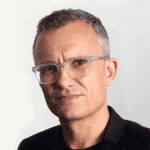From Brokdorf to Fukushima: The long journey to nuclear phase-out
By Alexander Glaser | November 1, 2012
Shortly after the accident at the Fukushima Daiichi Nuclear Power Station, Germany’s government started preparing legislation that would close the country’s last nuclear power plant by 2022. But this wasn’t an entirely new development: Germany had been planning to leave nuclear energy behind for decades, and to understand its nuclear phase-out requires a close look at the past. Several projects and events mark the beginnings of the German anti-nuclear power movement: Among them are the huge protests over the Brokdorf reactor, which began in 1976 and led to civil war-like confrontations with police, and the controversy over the Kalkar fast-neutron reactor in the mid-1970s. Because of these and subsequent developments—including the 1986 Chernobyl accident—by the 1990s, no one in German political life seriously entertained the idea of new reactor construction. This tacit policy consensus led to energy forecasts and scenarios that focused on energy efficiency, demand reduction, and renewable energy sources. By the time of the Fukushima accidents, many of these new energy priorities had already begun to be implemented and to show effect. Replacing nuclear power in Germany with other energy sources on an accelerated schedule is likely to come with a price tag, but, at the same time, Germany’s nuclear phase-out could provide a proof-of-concept, demonstrating the political and technical feasibility of abandoning a controversial high-risk technology. Germany’s nuclear phase-out, successful or not, may well become a game changer for nuclear energy worldwide.
Together, we make the world safer.
The Bulletin elevates expert voices above the noise. But as an independent nonprofit organization, our operations depend on the support of readers like you. Help us continue to deliver quality journalism that holds leaders accountable. Your support of our work at any level is important. In return, we promise our coverage will be understandable, influential, vigilant, solution-oriented, and fair-minded. Together we can make a difference.
Keywords: Brokdorf reactor, Kalkar, fast breeder reactor, fast neutron reactor, nuclear energy, nuclear exit, nuclear phase-out
Topics: Uncategorized














